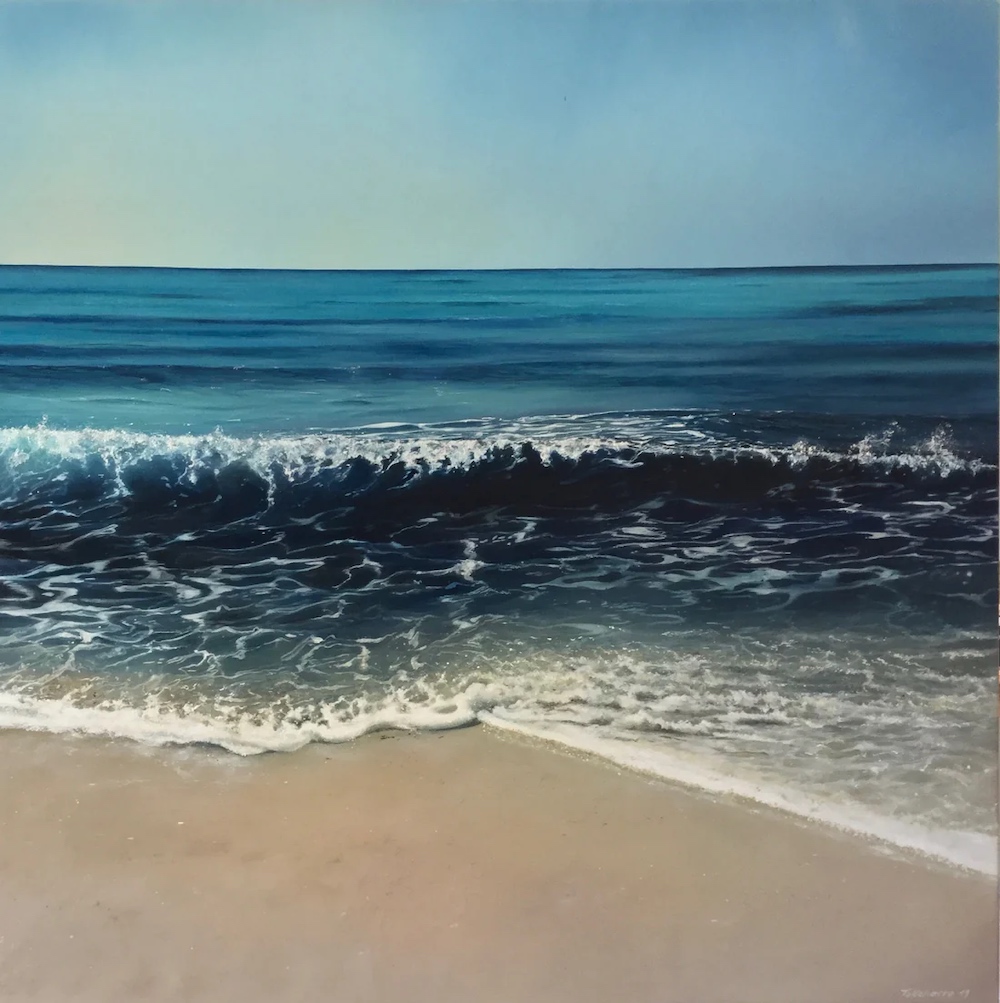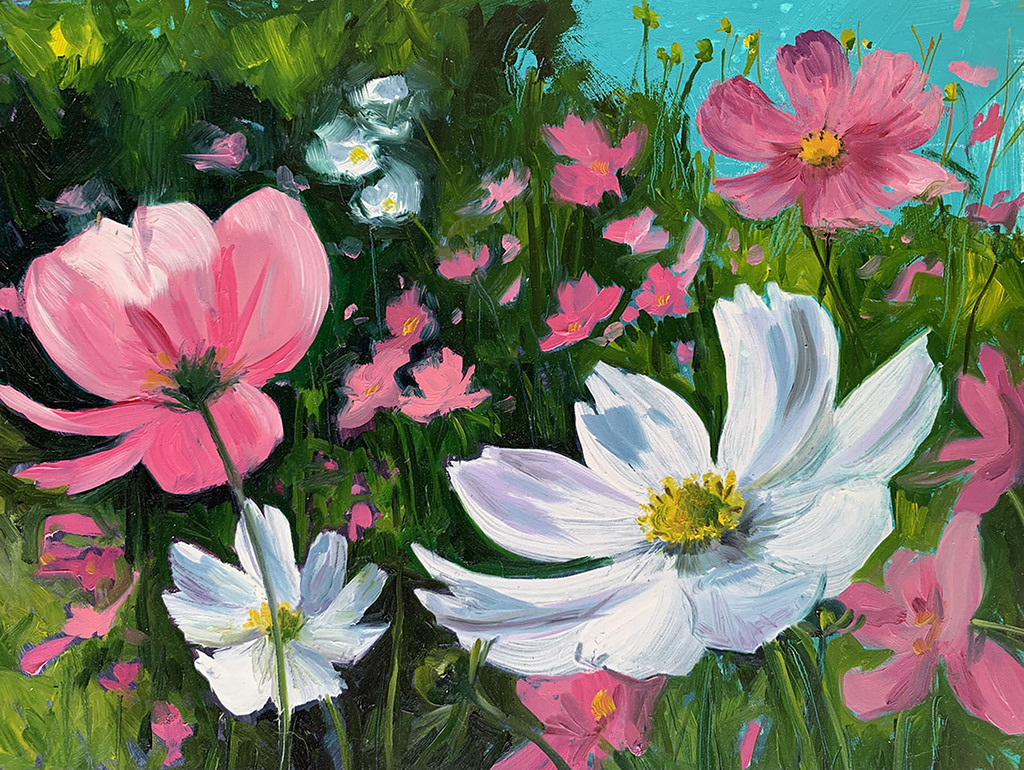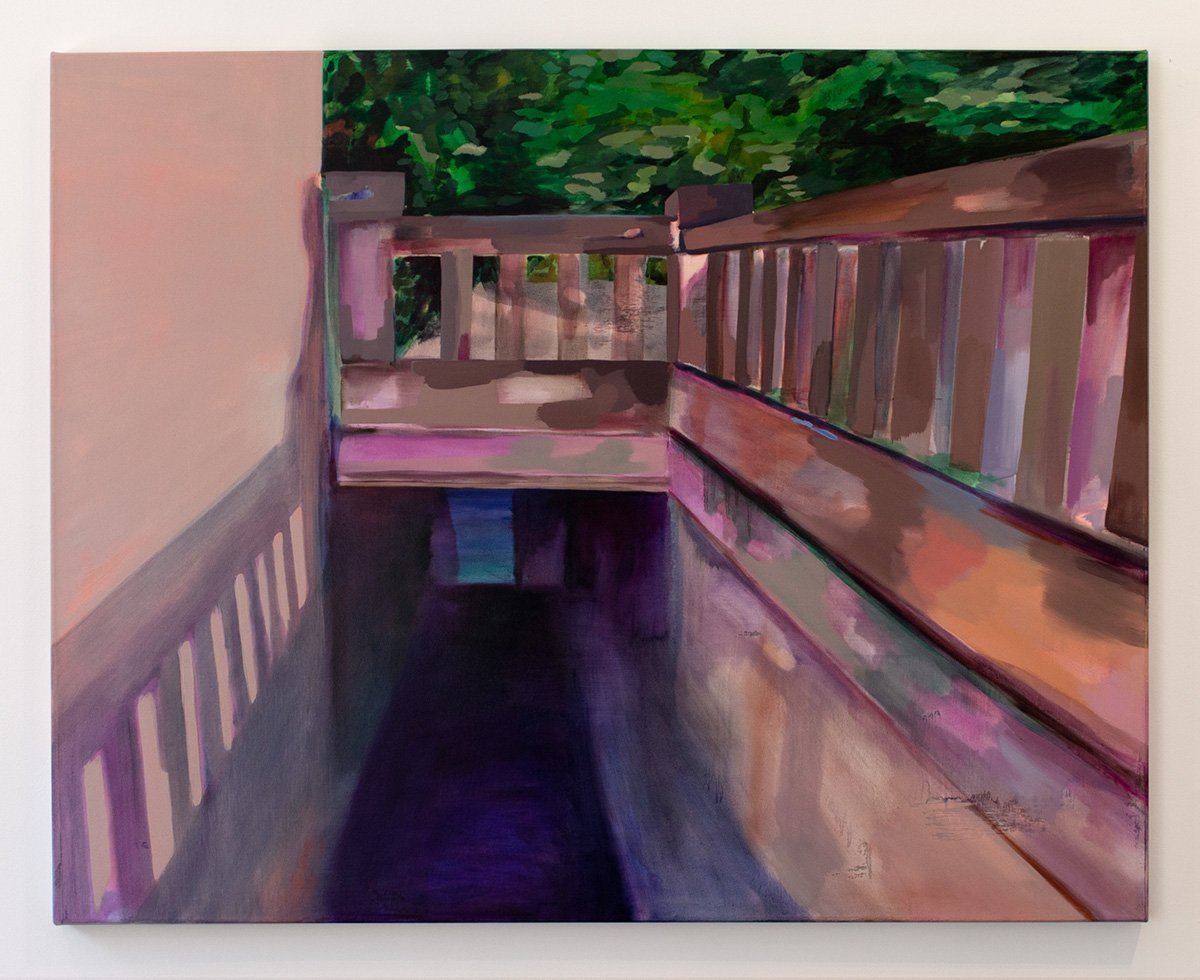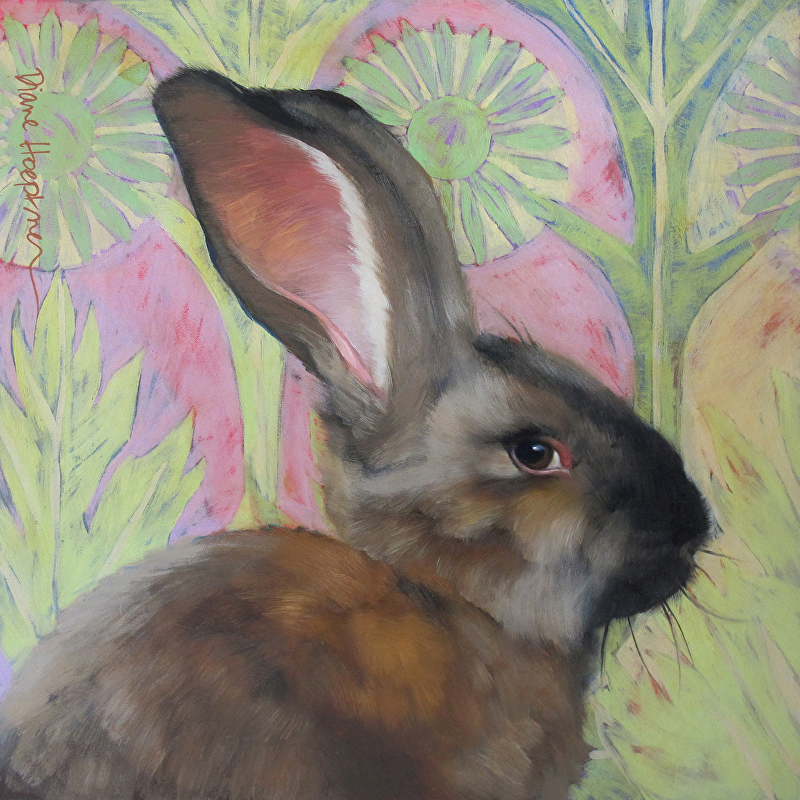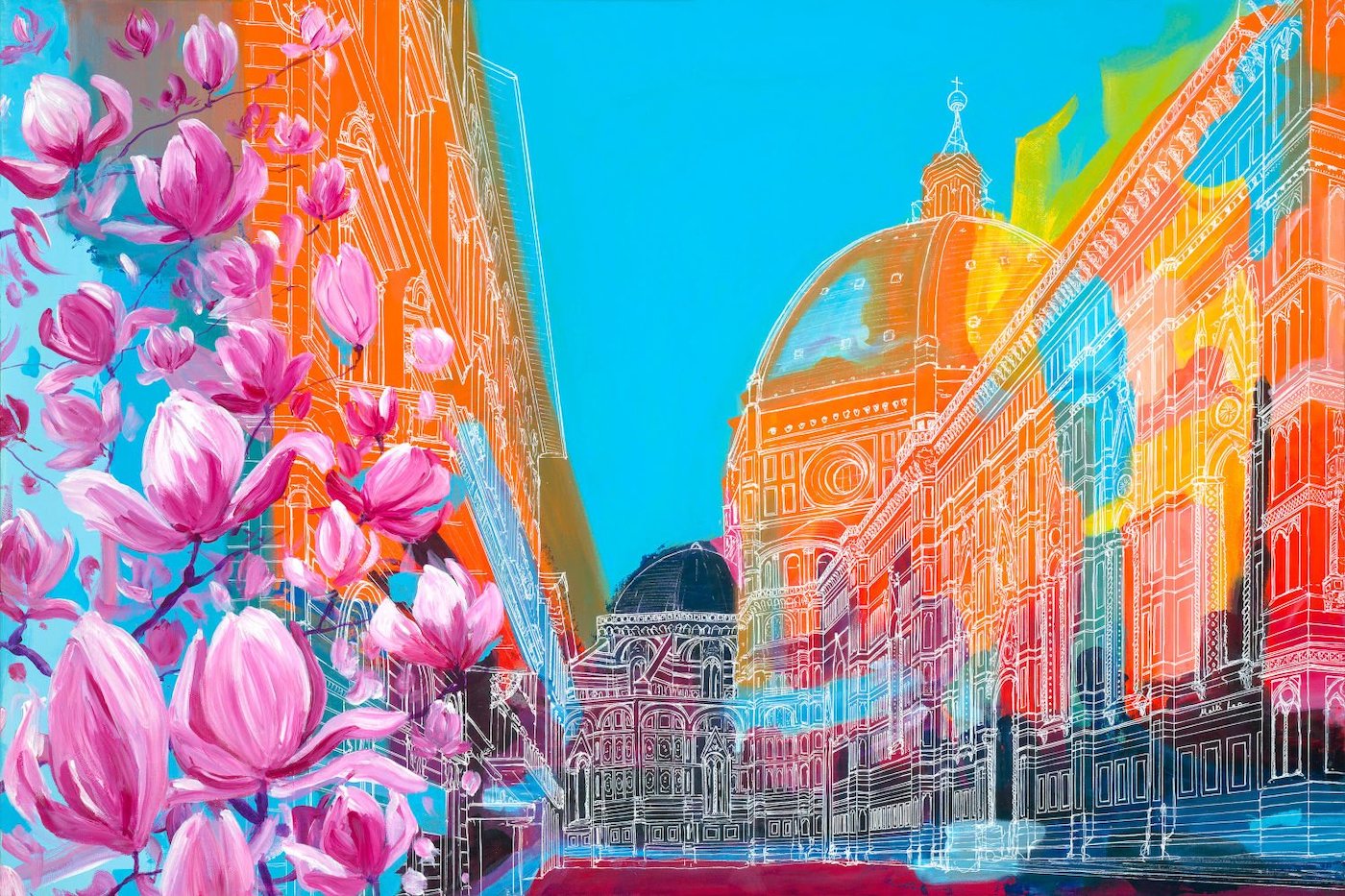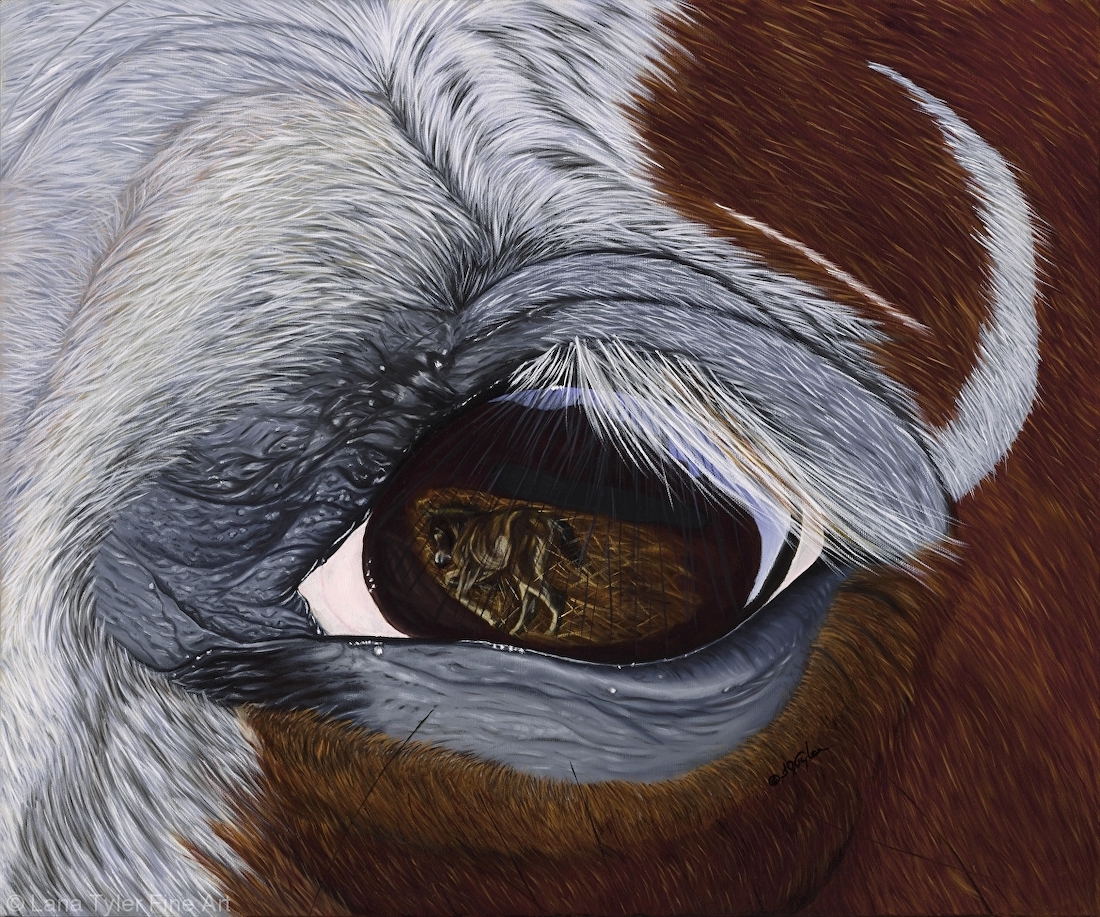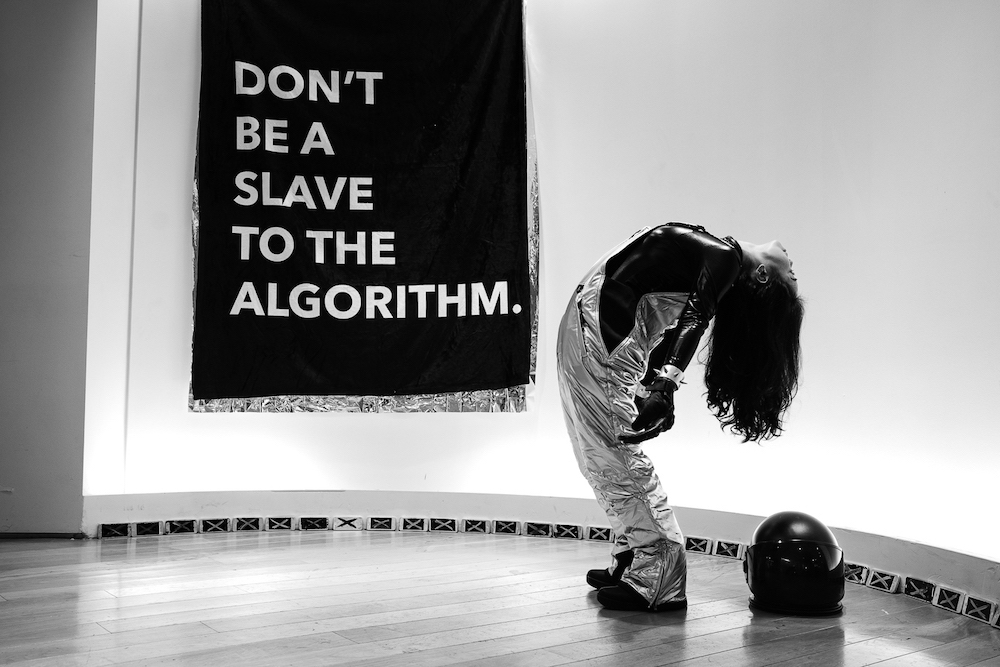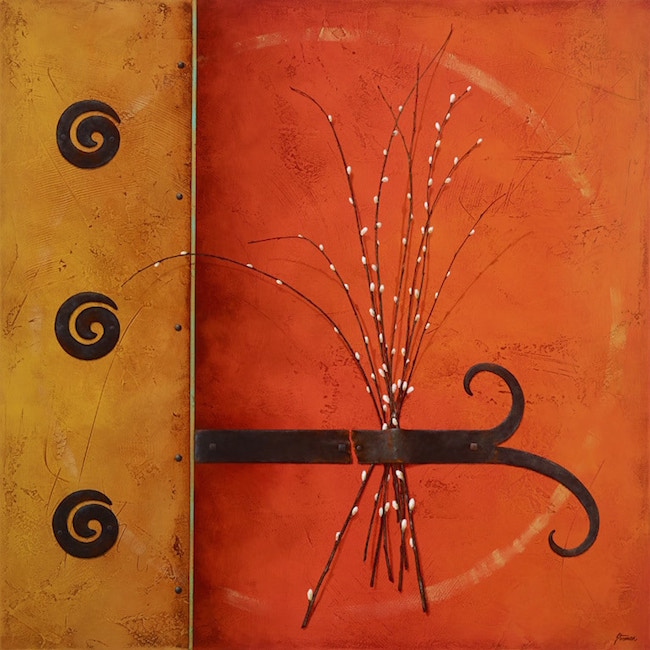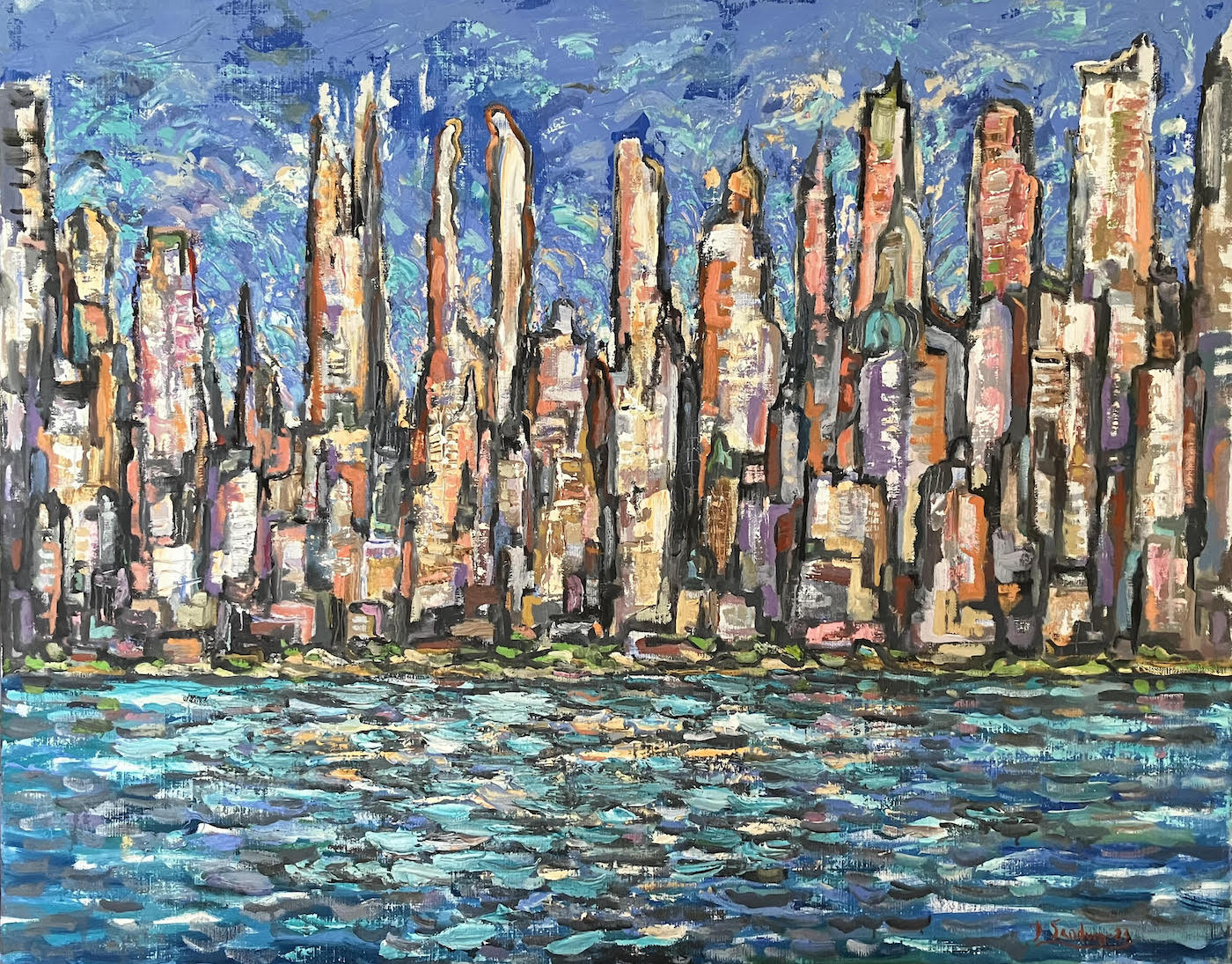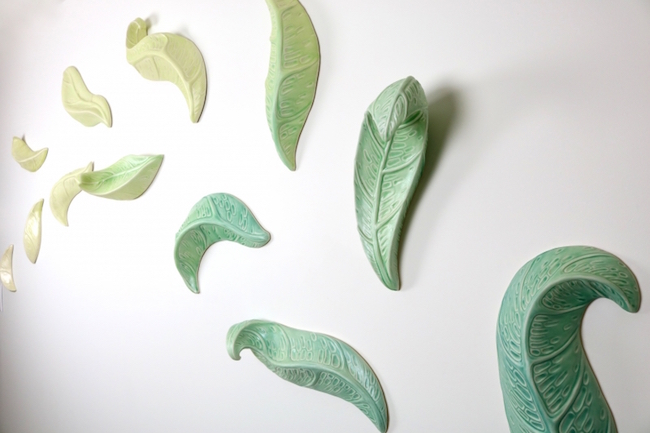Action builds confidence, and you need verbs for action. Look back on how your confidence as an artist has grown over as a result not only of reading about something or hearing about it, but of actually doing it....
As we learned when diagramming sentences in 4th grade, verbs are where the action is. No verb in the sentence, no action.
The first iteration of my newsletter for artists back in 2002 included a specific art business action at the end of each issue. “Do this,” it said.
My book, I’d Rather Be in the Studio, is broken down into 16 “actions” rather than chapters.
I’m all about action, but am no longer interested in it in the form of obsessive hyper-productivity. I’ll leave that to the bro motivators out there. Action at all costs isn’t healthy.
But action—even the tiniest step—moves the needle.
And action builds confidence. As marketing mentor Ilise Benun said on Jenny Blake’s podcast, “We aren’t inherently confident. It’s a byproduct of action.”
Take a moment to let that sink in. Think about how true it is.
CONFIDENCE
is a byproduct of action. —Ilise Benun
Look back on how your confidence as an artist has grown as a result not only of reading about something or hearing about it, but about doing it. Making more art. Having more shows. Submitting to more opportunities.
With this in mind, I got to thinking about a few verbs to live by that you might not normally associate with your art career.
See if these resonate with you.
Listen to the Podcast
1. Devote
Devote yourself to the life of an artist. There are all kinds and levels of artists out there, and it’s easy to recognize when artists aren’t completely devoted to their work or the life of an artist.
Devote sacred time in the studio and devote necessary time in your office.
Lack of devotion in the studio looks like this: work that is all over the place, unfocused, and without direction.
Lack of devotion to a business might look like this: pricing your art too low, showing in the same shows year after year, or having an outdated website.
Lack of devotion yields lack of results.
It’s not about balance, but about an obsession with art. David Sandum talked about this obsession in episode 169 of The Art Biz.
The unshakeable certainty that you are meant for this artist’s life will help you move past the insecurities and get you through the rough patches—as will acknowledging that the road ahead isn’t easy street.
It’s fine if you want to keep your art as a hobby, but don’t pretend that you can reach a certain level of success—whatever that looks like to you—without utter devotion.
On the upside, if you're truly doing the work you were meant to do, you won't be able to imagine doing anything else. You'll enjoy the journey.
2. Begin
Stop waiting for circumstances to be perfect because that will never happen.
If you have an idea that you're excited about, and it’s aligned with your vision, there's no time like now to start working on it.
Begin the piece of art or project that has been on the back burner for too long.
Begin teaching a new workshop, as long as you’re qualified and have the desire and skills to teach. Start small and charge less if you have to in order to build your teaching resume.
Begin a new marketing campaign because you can’t wait to share your work with the world outside of your studio walls.
Begin something. Anything.
3. Understand
Understand that you are not alone. You are part of a larger community of artists and a distinguished history of art.
In general, artists are a generous lot. They share openly and freely. They want to connect, and they’re waiting to make that connection with you. More on that in a minute.
As you’re working in the studio, think of the legacies of your favorite artists who paved the way through their innovations. Understand that you are here, in part, because of them.
Understand how the art world works. Yes, I believe in breaking the rules or making up your own rules, but you at least need to be aware of how the art world works so you understand the rules that other artists are following, where you fit in, and how you might distinguish yourself.
You have to know the rules before you can break them and forge your own path.
You have to know the rules before you can break them.
4. Connect
Of all the verbs for artists, this is probably my favorite because connection is what gives our lives purpose.
There is much to be done on your own, but connecting frequently to the world outside your studio is essential to your success.
YOU NEED PEOPLE
to succeed
You need other artists to empathize with. You need collectors to purchase your art and provide you with commissions.
You need gallerists and other venue owners to give you the space to show and sell.
You need viewers to see your art, discuss it, share it. All of that adds layers of meaning to your work.
You need connection.
5. Avoid
While art is mostly about embracing new experiences and ideas, accomplished artists understand that avoidance is also an advantageous tactic to have in your back pocket.
Avoid making comparisons between yourself and other artists. It’s useful when you are starting out to have teachers and mentors, but to soar, you must know who you are as an artist. You must find your own voice.
Avoid distractions that take you away from your art and your life vision. Obviously this is easier said than done.
We encounter distractions every second of the day. They are insidious, and some are more trouble than others. As you mature as an artist, you’ll be able to recognize the big distractions that force you off course: commissions that are wrong for you, invitations that aren’t aligned with your goals, and professional relationships that take you for granted. That brings me to …
Avoid people who crap on your dreams. Limit time and set boundaries with family members and people who don’t get you. Life is too short to waste your energy with toxic relationships.
6. Investigate
Be intensely curious about the world that provides inspiration for your art. Take that curiosity to another level through research.
Investigate your subject matter in depth—from every angle. And I’m not talking about using Google or ChatGPT. Read novels, historical records, philosophy, current headlines, and wherever else the trails lead.
If you don’t think you have subject matter, maybe reconsider your direction. Even if it wasn’t visible or obvious to viewers at the time, even the most abstract artists in history had subject matter. Their art evolved from something other than the materials itself.
Investigate opportunities for showing, selling, and/or teaching.
You’re always looking for the next feather to add to your cap.
Investigate the art scene around you.
Attend shows. Know what’s going on in your community and where you fit in.
Be hungry for the information and experiences that will fuel your accomplishments.
7. Finish
As you begin, so must you finish.
The bottom line is that nothing counts until it’s done. Until it’s out of your hands, out of your control, and out into the world.
Finishing isn’t a single step—a simple flourish at the end. Finishing requires a series of steps.
To finish your art, you might glaze the surface, sign it, photograph it, add it to your official inventory, send an invoice, and add it to your website portfolio.
Those are multiple steps to call a work complete.
To finish a project, you might collect and analyze data, send thank-you notes, pay invoices, and clean up related digital documents.
Every artist has a different set of steps for finishing, and you need to know what yours are.
All of the grand plans and brilliant ideas in the world amount to nothing until they are seen to completion.
HOW TO USE
these verbs
Those are my 7 verbs for you to consider: Devote, Begin, Understand, Connect, Avoid, Investigate, and Finish.
They’re actions you’re already taking to some extent, but perhaps you’ll think about them a little more as you go throughout your days.
When you are feeling insecure, remember that you have devoted yourself to the life of an artist.
When you are procrastinating, begin with the smallest step.
When you are lost in the studio, understand and feel the presence of the legacies of artists who have come before you.
When you are lost in your business or feeling lonely, connect to other artists and people who get you.
When you aren’t feeling productive, consider what is getting in your way and take steps to avoid it.
When the work doesn’t feel right, investigate. Go deeper.
When it’s time to move on to the next project, make sure you finish the current one.
This post was originally published in a very different form on June 1, 2017. It has been updated significantly with the addition of a podcast episode, but with all original comments intact.
The post The Art Biz ep. 170: 7 Essential Verbs for Artists to Embrace appeared first on Art Biz Success.



